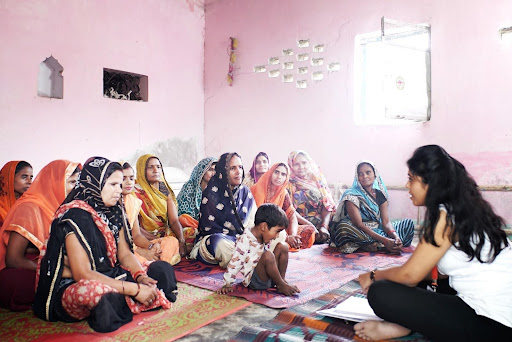
Inclusivity and diversity are fundamental cornerstones of the microfinance industry in India, crucial for fostering equitable access to financial services and ensuring that all segments of society can benefit from its transformative potential. It thus, play pivotal roles in enhancing the effectiveness of microfinance services, ensuring sustainability, and maximizing its overall impact. Numerous compelling reasons underscore their critical importance, and here are a few that I would like to highlight:
- 1. Targeting Underserved Communities: India's microfinance sector primarily aims to provide financial services to underserved and marginalized communities, mostly women of rural populations, and minorities. Embracing diversity ensures that these diverse groups have equal access to financial resources and opportunities, addressing socio-economic inequalities and promoting inclusive growth.
- 2. Empowerment of Women: Women constitute a significant portion of microfinance clients in India. Inclusive practices empower women economically by providing them with access to credit, savings, insurance, and other financial services. This empowerment not only enhances women's livelihoods but also contributes to gender equality and women's social and political empowerment.
- 3. Cultural Sensitivity and Tailored Solutions: India is culturally diverse, with different regions and communities having unique socio-economic contexts and needs. Embracing diversity allows microfinance institutions (MFIs) to develop culturally sensitive and tailored financial products and services. This customization enhances the relevance and effectiveness of microfinance interventions, fostering trust and engagement among diverse client groups.
- 4. Financial Inclusion and Poverty Alleviation: Inclusive microfinance practices expand financial inclusion by reaching marginalized populations who are often excluded from formal banking services. By providing access to affordable credit and savings options, MFIs enable low-income households to manage financial shocks, invest in income-generating activities, and lift themselves out of poverty.
- 5. Mitigating Risks and Building Resilience: Diversity within the microfinance sector promotes resilience and sustainability. MFIs that serve diverse client bases are better equipped to withstand economic downturns and external shocks. Moreover, diversity in leadership and governance structures brings varied perspectives and expertise, enhancing strategic decision-making and risk management practices.
- 6. Policy Advocacy and Social Impact: Inclusivity within the microfinance industry enables stakeholders to advocate for policies that support financial inclusion and empower marginalized communities. By demonstrating the positive impact of inclusive practices on poverty reduction and socio-economic development, MFIs contribute to shaping inclusive policy frameworks and fostering a supportive regulatory environment.
- 7. Ethical Leadership and Reputation: Embracing inclusivity and diversity demonstrates ethical leadership within the microfinance sector. Organizations that prioritize diversity and inclusion not only uphold principles of fairness and equality but also enhance their reputation as socially responsible entities. This reputation can attract impact investors, donors, and partners who value diversity and are committed to supporting inclusive economic growth.
In conclusion, inclusivity and diversity are integral to the success and sustainability of the microfinance industry in India. By cultivating an inclusive environment that embraces cultural diversity, promotes gender equality, and addresses the needs of marginalized communities, MFIs can achieve enhanced social impact, financial inclusion, and economic empowerment nationwide.
I strongly believe that diversity and the inclusion of women in our workforce are not only imperative for ethical and social reasons but also essential for organizational success and long-term viability. At Arohan Financial Services Limited, a leading NBFC-MFI, we are committed to delivering financial services to underserved communities across India. We recognize that this mission can only be fully realized through a diverse and inclusive team that not only enhances efficiency but also mirrors the diversity of the clients we serve.
Kanchan Banerjee
(Ms. Banerjee is the Head of Human Resources, Training & Development, Administration and Corporate Social Responsibility, Arohan Financial Services Limited, an Aavishkaar Group company – views expressed above are personal).


